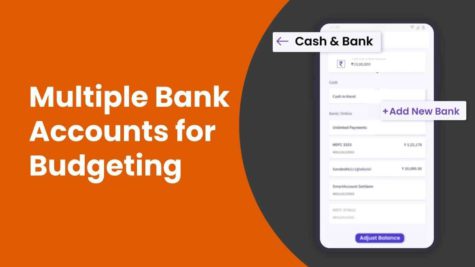Master Your Money: Budgeting with Multiple Bank Accounts
When it comes to managing finances, having multiple bank accounts can be a helpful tool. While it may take a bit of effort to get used to, the benefits are well worth it. With the right mix of accounts, you can better manage your cash flow, keep spending under control, and make the most of each account.

Why Should You Have Multiple Bank Accounts for Budgeting?
Here are three key benefits of utilizing this strategy.
- Better Budgeting: Separate your earnings, spending money, savings, and other finances into different accounts to help you stick to your budget.
- Easy Tracking: Having multiple accounts makes it easier to track your spending and see exactly where your money is going.
- Faster Savings: With a well-organized money management system, you can save money more quickly and achieve your financial goals faster.
How to Utilize Your Multiple Bank Accounts for Budgeting
Here is how to use multiple bank accounts for budgeting:
Business Checking Account: If you are self-employed, having a designated business checking account for all your earnings is a good idea. This helps in organizing your income streams and making taxes easier. Additionally, it also provides liability protection if you have an LLC.
Reserve Savings Account: This is a “catch-all” account that holds money saved for big goals such as vacations and other miscellaneous expenses. This account earns interest on any money that is not immediately needed to be spent. So, instead of spending your paycheck, automatically transfer funds to this account each week to use for spending money.
Emergency Fund: This is an account that holds money for unexpected expenses. Keeping it in a separate bank from your other accounts makes it easier to manage your emergency and non-emergency savings separately.
Primary Spending Account: A primary spending account is a basic high-yield checking account that lets you earn interest and save. Online banks typically offer better interest rates, fewer fees, and more features than traditional banks. This account should have as little money as possible to avoid overspending.
Reserve Spending Account: A reserve spending account is a secondary checking account linked to your primary account and reserve savings account. This account pays fixed expenses that come up less than once a month.
Credit Cards: Using credit cards responsibly, such as paying balances in full each month and staying below credit limits, can be a better option than debit cards. Credit card issuers protect against fraud and have the ability to dispute transactions. Using multiple credit cards can help you earn rewards and points, but keeping track of your spending is vital to avoid overspending and getting into debt.
An Alternate Way to Have Multiple Bank Accounts
Multiple bank accounts for budgeting is a valuable strategy for organizing and managing your finances. The five categories for this method include: Earn, Spend, Reserve, Fun, and Freedom.
- The Earn account is for income
- Spend is for routine expenses
- Reserve saves for less frequent expenses
- Fun is for enjoyable experiences
- Freedom is for long-term financial goals.
With these designated accounts, you can easily track your spending and savings, separate your expenses, and work towards your financial goals.
Steps to Managing Multiple Bank Accounts Effectively
Here are three steps to make multiple bank accounts work for you.
1.Communicate with your partner about multiple bank accounts for budgeting
Decide if separate or joint accounts are best for your financial goals.
2.Evaluate existing bank accounts before opening new ones for budgeting
Optimize current accounts before making significant changes. Consider multiple bank accounts for budgeting to improve budgeting skills.
3.Use budgeting apps for effective multiple bank accounts management
Billing App like myBillBook allow you to link and view all accounts in one place and provide tips for saving money and over-budget alerts. Stay organized and track your spending easily.
FAQs on Multiple Bank Accounts for Budgeting
What type of bank accounts are recommended for budgeting purposes?
For budgeting, it is advisable to have at least two bank accounts: a checking and a savings account. More may be helpful, including multiple savings accounts, business accounts, and credit cards.
How many credit cards should I have for budgeting with multiple bank accounts?
The number depends on spending habits and management ability.
What is the minimum number of bank accounts required for budgeting?
Minimum two bank accounts for budgeting: checking and savings, more for specific purposes
What are the fees for multiple bank accounts for budgeting?
It depends on the bank and account type. Compare fees and benefits before choosing a bank for your budgeting accounts.
Can multiple bank accounts for budgeting be linked to a budgeting app?
Yes, most budgeting apps allow linking multiple bank accounts for easier financial tracking and management.

